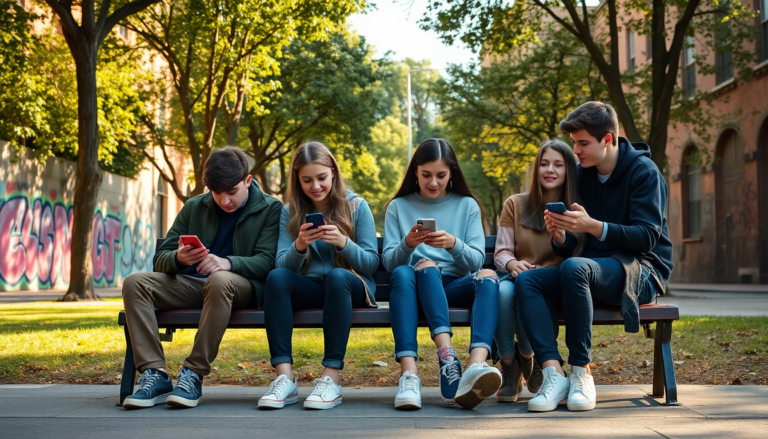Argomenti trattati
Understanding the changes in teen romance
As social media continues to shape our daily interactions, the landscape of teenage romance has evolved dramatically. Gone are the days of innocent hallway flirting and face-to-face invitations to hang out. Today’s youth find themselves navigating complex social dynamics that often unfold online, primarily through platforms like Snapchat, Instagram, and TikTok.
When I was younger, I was told that not having a romantic partner by a certain age could lead to dire consequences, a notion that, while exaggerated, left a lasting impression. As a 17-year-old who has never had a serious relationship, I often feel the weight of these societal expectations. The pressure to conform to a dating culture that is almost entirely digital can be overwhelming, especially when my peers seem to thrive in this new arena.
Social media plays a pivotal role in how teenagers today experience relationships. Instead of genuine interactions, many young people rely on digital communication to express their feelings and intentions. This shift has transformed dating into a performance, where public displays of affection are often prioritized over personal connections. Platforms like Snapchat have replaced traditional dating rituals, and the language of romance has changed dramatically.
In my observation, the concept of asking someone out has become somewhat obsolete. Instead, phrases like “hanging out” or “talking” have taken their place, often leaving the meaning ambiguous. This ambiguity can lead to confusion and anxiety about where one stands in a relationship. As someone who prefers to keep my dating life private, I find it challenging to navigate this new norm, where every interaction feels scrutinized.
The pressure to perform in modern relationships
As teenagers, we are bombarded with images of idealized relationships through social media influencers and celebrities. This constant exposure creates unrealistic expectations about love and romance. Many young people feel compelled to curate their relationships for an audience, leading to an environment where authenticity is often sacrificed for the sake of social media validation.
It’s concerning to witness how crushes and relationships can become viral sensations on platforms like TikTok, with every detail shared and dissected publicly. This scrutiny can create a culture of fear, where individuals are hesitant to express their true feelings for fear of being labeled as “cringe” or facing backlash from their peers. It’s a delicate balance between wanting to be seen and maintaining a sense of privacy.
Finding genuine connections in a digital world
Despite the challenges posed by social media, there remains a deep desire among teens for real connections and love. However, the fear of rejection and the pressure to conform to digital dating norms can make it difficult to pursue these feelings genuinely. As someone who has opted out of many social media platforms, I often feel disconnected from my peers, which only heightens my anxiety about dating.
It’s not uncommon for me to witness friends being criticized for not dating or participating in online interactions. The pressure to prove our desirability through digital means can be stifling. At times, it feels like the only way to validate our worth is through the attention we receive online, leading to a cycle of insecurity and self-doubt.
Embracing authenticity in love
As I reflect on my experiences, I realize that the quest for love in this digital age is fraught with complications. We have been taught to navigate our emotions carefully, often leading to a state of limbo where relationships are neither defined nor fulfilled. The fear of being vulnerable can prevent us from pursuing love altogether, creating a generation that is hesitant to engage in meaningful connections.
In this environment where everything is public, it’s essential to remember that love does not have to conform to societal expectations or online trends. We must embrace our individuality and recognize that seeking romance is a personal journey. While social media has its place, it should not dictate how we experience love and relationships.
Conclusion: The future of teenage romance
As we navigate this complex landscape, it’s crucial to find a balance between our digital lives and our emotional needs. While social media will continue to influence how we connect, it’s important to foster authentic relationships that prioritize communication and understanding. As a 17-year-old navigating this world, I remain hopeful that love will find its way back to its roots, where it is celebrated privately and cherished sincerely.

